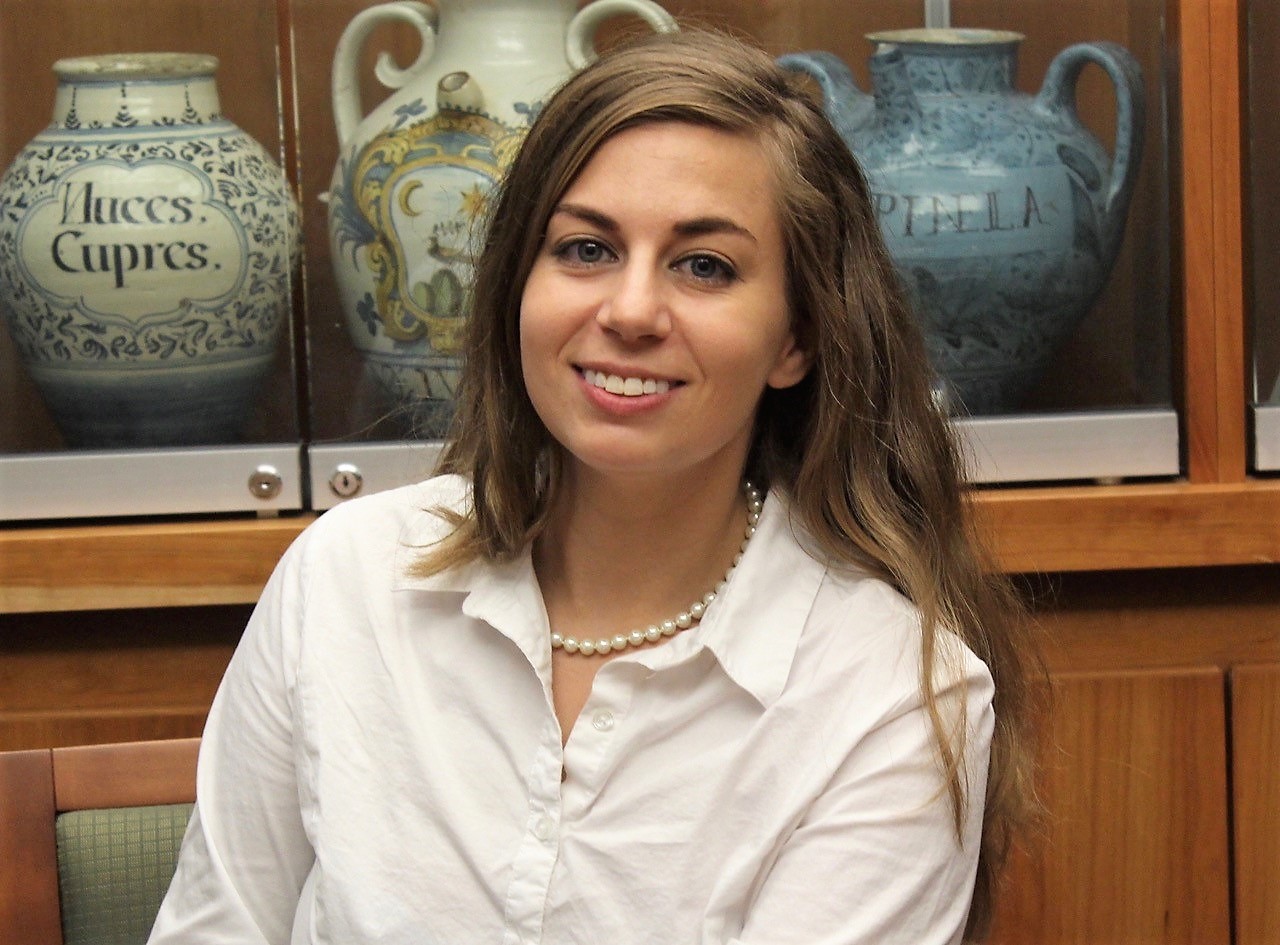C. Michael White, head of the Department of Pharmacy Practice, says he’s delighted to welcome Assistant Professor of Pharmacy Practice Stephanie Gernant into the fold.
He’s looking forward to the contribution she will make to the PeRformance Improvement for Safe Medication Management (PRISM) team — the group within Pharmacy Practice that is devoted to integrating pharmacists into an inter-professional health care system that focuses on skills-based education, practiced-based research, team-based care, and associated health policy issues.
Maybe he should be thanking her grandmother.

Gernant started college as an undergraduate at the University of Missouri. She was a biology major with a particular interest in entomology. But, while bugs were interesting, she knew early on that her ultimate goal was a career in healthcare.
It was her grandmother who tipped the scales towards pharmacy.
Gernant was deeply connected to her grandmother and provided much of the care for the woman who she describes with a smile as having ‘a big personality.’
“My grandmother was both a lovely and very ornery woman, and she wasn’t afraid to voice her opinion. On our frequent trips to pick up her various medications, the pharmacist was so good and patient with her,” Gernant says. “It was clear they loved each other as they would banter back and forth. I said to myself ‘I want to be able to do that.’ It was their relationship that really made me consider a career in pharmacy.”
Still, choosing to apply to Ohio State’s School of Pharmacy was somewhat of a risky choice for Gernant, who had no family members in the profession and who had never actually worked in a pharmacy herself. However, once her studies began, she knew she had made the right decision.
It was as a pharmacy intern in a 340B community pharmacy serving a low-income population that she was first introduced to the challenging issues of drug adherence and chronic disease management. When adding complications such as immigration status, language, and homelessness, the hurdles of delivering quality health care might have seemed insurmountable to some. Not to Gernant.
She describes her PGY-1 Community Pharmacy Residency in Bangor, Maine as being especially valuable. Penobscot Community Health Care was a Pioneer Accountable Care Organization (ACO). It offered primary care, a Federally Qualified Healthcare Center (FQHC), a patient centered medical home (PCMH), and a community pharmacy. “So it was a really fantastic hybrid in which to learn,” she says.
Following an American College of Clinical Pharmacy peer-reviewed two year fellowship in Community Pharmacy Practice-Based Research at Purdue University, Gernant began her teaching career at Nova Southeastern and Larkin University College of Pharmacy, both in Florida. There, she focused on connecting community pharmacists to ACOs, as well as teaching.
When a position in Pharmacy Practice at UConn’s School of Pharmacy became available, she jumped at the chance to apply. She says she knew that UConn would offer opportunities for her to get involved in teaching the same skills that first ignited her interest in pharmacy as a career — the skills demonstrated by her grandmother’s pharmacist back in Missouri.
Gernant explains her role within PRISM as fostering a community pharmacy practice-based research network (CPRN) that integrates community pharmacy primary and preventative care with research. The network’s projects can enhance the health and well-being of patients and substantiate the value of pharmacists in community practice so it is visible to payers and policymakers.
She says, “This is a fantastic route before and after graduation for students who want to advance the profession.”
Having spent the last several weeks settling into the routine of a new semester, Gernant is already impressed with the students in the School of Pharmacy, but she is not surprised.
“They’re professional, courteous, and talented; they’re going to be advancing the field [of pharmacy] with their practices for decades to come — and I can’t wait to see what they come up with!” she says.
As for White, he says that Gernant will be building on the preliminary work that has already been done with community pharmacies by her PRISM colleagues, Pharmacy Practice professors Thomas Buckley and Charles Caley.
“Stephanie has a history of successfully partnering with pharmacies in Florida to provide clinical services and PRISM has the infrastructure and critical mass of expertise to generate compelling data that can influence public health officials and payers,” White says.
He adds, “We’re glad she saw the promise of PRISM, bought into the concept, and was willing to move here to be part of something big.”



